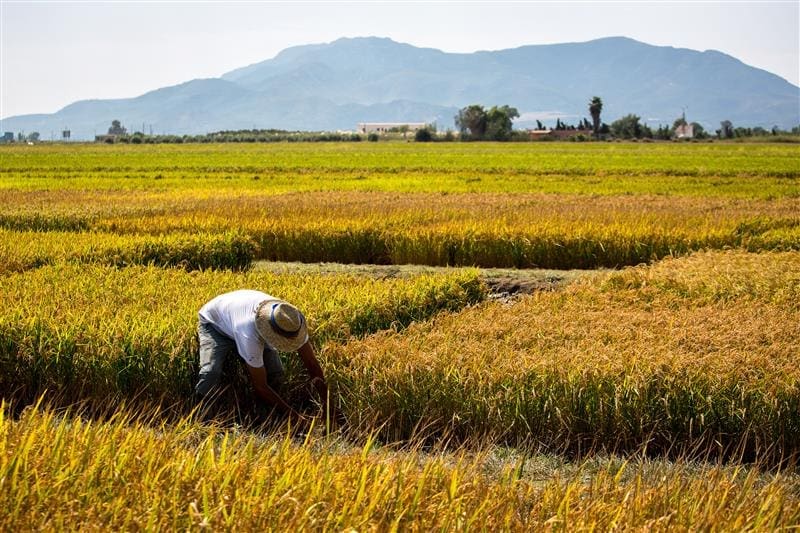
Rice cultivation is facing growing challenges in terms of sustainability and productivity. The spread of herbicide-resistant weeds, high water demand, and greenhouse gas emissions are among the main challenges. To address these issues, we have launched the demonstration project HERBESREG in the Ebro Delta, funded by the Department of Agriculture, Livestock, Fisheries, and Food, to test new irrigation strategies that optimize production and reduce environmental impact.
“We need viable alternatives to secure the future of rice cultivation, especially in the context of climate change and water restrictions. This project will help us understand the best balance between water use efficiency, weed control, and crop yield,” explains Néstor Pérez-Méndez, researcher in the Sustainable Extensive Crops program at IRTA and coordinator of the study.
Throughout 2025, at IRTA’s Experimental Station in Amposta, we will compare three water management strategies:
The study will take place in experimental plots using the JSendra rice variety and will assess water consumption, weed control effectiveness, and crop yield. We will also monitor plant density, growth, and grain quality, as well as the biomass of weeds such as Echinochloa sp., Leptochloa sp., Cyperus sp., and Ammania sp.
In addition to weed control, HERBESREG will evaluate the impact of these new techniques on biodiversity, soil salinity, and climate change adaptation.
One of the main motivations for implementing dry sowing is to combat the apple snail (Pomacea maculata), an invasive pest that has affected the Ebro Delta since 2010. Dry sowing reduces its impact in the early stages of the crop, when the plant is most vulnerable. “In addition to using less water, these strategies could be a solution in fields with low salinity soils to minimize the impact of the apple snail without relying so heavily on chemical products,” adds Pérez-Méndez.
Currently, over 60% of the world’s rice-growing area is cultivated under continuous flooding. However, the use of alternative irrigation strategies is on the rise due to water restrictions and the need to reduce pesticide use. This study could pave the way for new practices that could be implemented not only in the Ebro Delta but also in other rice-producing regions around the world.
The study is part of IRTA’s research line on climate change mitigation and will last two years. The first field campaign begins in summer 2025, with initial results expected in October. The second phase will continue through fall 2026, when final conclusions will be shared with the rice sector.

Researcher in agroecology, biodiversity conservation, ecosystem services and rice ecology


